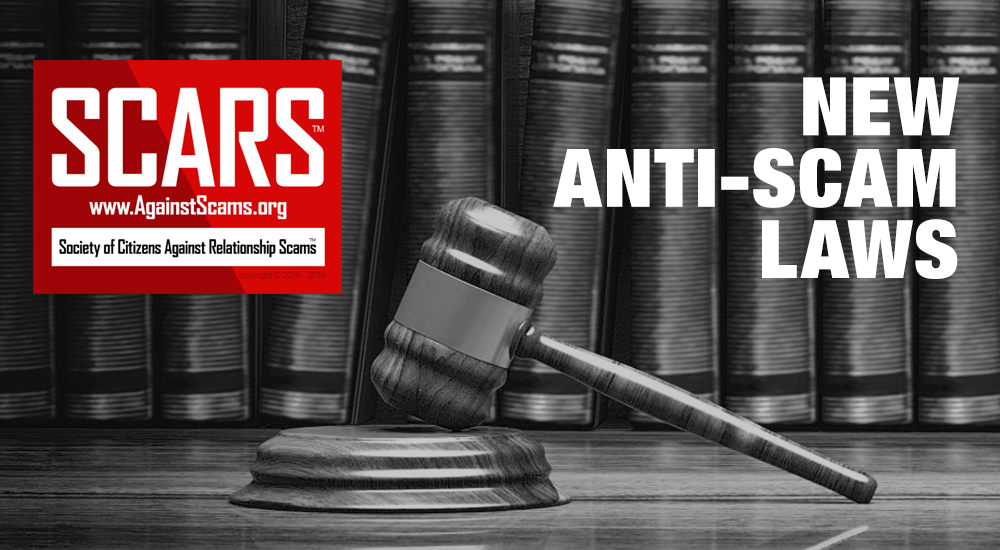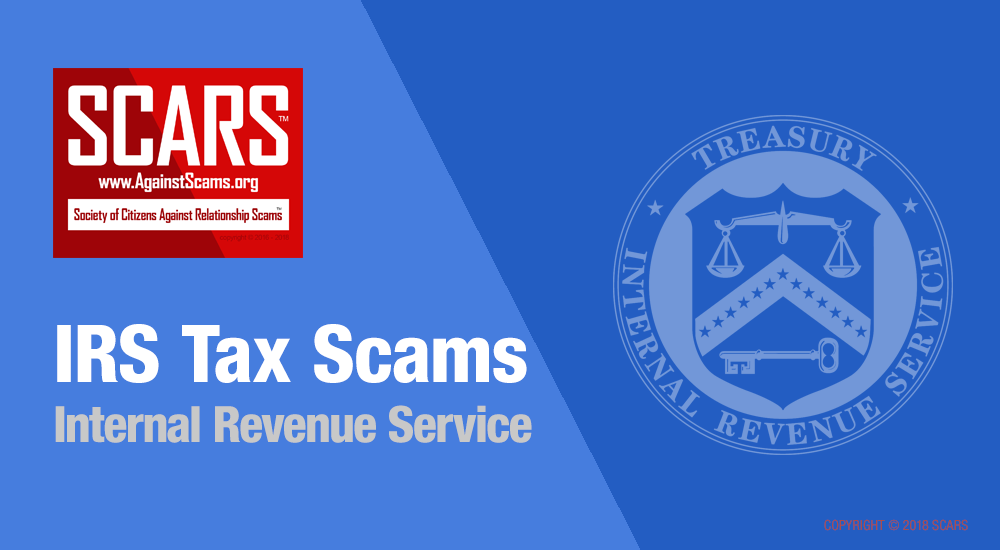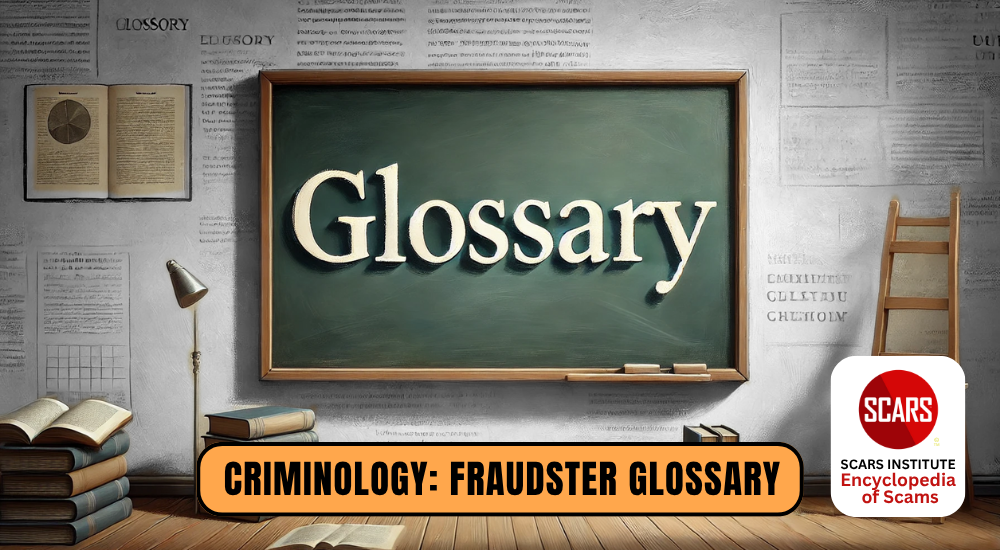
SCARS Institute’s Encyclopedia of Scams™ Published Continuously for 25 Years

SCARS™ Guide: Guide to Taxpayer Identity Theft & Scams
Tax-Related Identity Theft Occurs When Someone Uses Your Stolen Personal Information, Including Your Social Security Number, To File A Tax Return Claiming A Fraudulent Refund
If you suspect you are a victim of identity theft, continue to pay your taxes and file your tax return, even if you must file a paper return.
Know the Signs of Taxpayer Identity Theft (Similar For Other Countries Too)
You may not know you’re a victim of identity theft until you’re notified by the IRS of a possible issue with your return.
Be alert to possible tax-related identity theft if:
- You get a letter from the IRS inquiring about a suspicious tax return that you did not file.
- You can’t e-file your tax return because of a duplicate Social Security number.
- You get a tax transcript in the mail that you did not request.
- You get an IRS notice that an online account has been created in your name.
- You get an IRS notice that your existing online account has been accessed or disabled when you took no action.
- You get an IRS notice that you owe additional tax or refund offset, or that you have had collection actions taken against you for a year you did not file a tax return.
- IRS records indicate you received wages or other income from an employer you didn’t work for.
Take Action if You Are a Victim
There are steps you can take if your Social Security number or other personal information is compromised.
Tax-Related Identity Theft
If your Social Security number is compromised and you know or suspect you are a victim of tax-related identity theft, the IRS recommends these actions:
- Respond immediately to any IRS notice: Call the number provided.
- If your e-filed return is rejected because of a duplicate filing under your Social Security number, or if the IRS instructs you to do so, complete IRS Form 14039, Identity Theft Affidavit (PDF). Use a fillable form at IRS.gov, print, then attach the form to your return and mail your return according to instructions.
- Visit IdentityTheft.gov for steps you should take right away to protect yourself and your financial accounts.
See Identity Theft Victim Assistance: How It Works for more information about how the IRS can help you.
If you previously contacted the IRS and did not have a resolution, contact us for specialized assistance at 1-800-908-4490. We have teams standing by to help you.
Fraudulent Returns
If you believe someone has filed a fraudulent return in your name, you can get a copy of the return. See Instructions for Requesting a Copy of Fraudulent Returns.
Dependents
If you e-file your tax return and get a message telling you that a dependent on your return has been claimed on another tax return or their own, or if you receive an IRS Notice CP87A, you’ll need to find out why someone else claimed your dependent. Learn more at What to Do When Someone Fraudulently Claims Your Dependent.
Data Breach
Not all data breaches or computer hacks result in tax-related identity theft. It’s important to know what type of personal information was stolen.
If you’ve been a victim of a data breach, keep in touch with the company to learn what it is doing to protect you and follow the “Steps for victims of identity theft.” Data breach victims should submit a Form 14039, Identity Theft Affidavit (PDF), only if your Social Security number has been compromised and your e-filed return was rejected as a duplicate or the IRS instructs you to file the form.
Employment-Related Identity Theft
If you believe someone has been using your Social Security number for employment purposes (as opposed to filing fraudulent tax returns for refunds in your name) see our Guide to Employment-Related Identity Theft.
Protect Your Data and Identity – Your Computer and Mobile Phone
The IRS, state tax agencies and the tax industry need your help to fight back against identity thieves. See Taxes. Security. Together.
Some tips:
- Use security software and make sure it updates automatically; essential tools include virus/malware protection and a firewall.
- Use encryption programs to protect sensitive digital data.
- Treat your personal information like cash; don’t leave it lying around.
- Use strong, unique passwords; consider a password manager.
- Use multi-factor authentication when it’s offered.
- Give personal and financial information only over encrypted websites; look for “https” addresses.
- Back up your files.
Phishing Emails and Scams
Identity thieves use phishing emails to trick users into giving up passwords and other information. Don’t take the bait. Look for emails that:
- Pose as a trusted source such as a bank or a tax provider.
- Contain an urgent message (such as “Update your account now!”) with instructions to open a link or attachment.
And remember these good guidelines:
- Never download software or apps from pop-up advertising.
- Talk to family about online security for their computers and their mobile devices.
Report suspicious online or emailed phishing scams to phishing@irs.gov.
Report IRS impersonation scams to the Treasury Inspector General for Tax Administration’s IRS Impersonation Scams Reporting.
Passwords
Create strong passwords that follow these simple guidelines:
- Use long phrases that you can remember, combined with characters and numbers. Example: SomethingYouCanRemember@30.
- Use a different password for each account and use a password manager.
- When possible, don’t use your email address as your login ID.
- Use two-factor authentication whenever it’s offered. This is particularly important for protecting your email, financial and social media accounts.
IRS Identity Protection PINS
If you filed a federal tax return last year from one of 20 locations, you may be eligible to opt-in to the IP PIN program. The IP PIN is a 6-digit PIN that offers additional protection for your Social Security number on your tax return.
To obtain an IP PIN, you must be able to verify your identity through a rigorous Secure Access process. Review the Secure Access requirements before you start to learn more about the IP PIN and how to use the Get an IP PIN tool.
At the start of the 2020 filing season, taxpaying residents of these locations will be eligible for the IP PIN program: Arizona, California, Colorado, Connecticut, Delaware, District of Columbia, Georgia, Florida, Illinois, Maryland, Michigan, Nevada, New Jersey, New Mexico, New York, North Carolina, Pennsylvania, Rhode Island, Texas, and Washington.
How The IRS Helps
The IRS, state tax agencies and the tax industry work in coordination as the Security Summit to protect taxpayer data. Our program includes safeguards that identify suspicious returns.
The IRS never:
- Initiate contact with taxpayers by email, text or social media to request personal or financial information
- Call taxpayers with threats of lawsuits or arrests
- Call, email or text to request taxpayers’ Identity Protection PINs
Publications
- Publication 4524, Security Awareness for Taxpayers (PDF)
- Publication 5027, Identity Theft Information for Taxpayers (PDF)
TAGS: SCARS, Important Article, Information About Scams, Anti-Scam, Scams, Scammers, Fraudsters, Cybercrime, Crybercriminals, IRS Scams, Scam Victims, Tax Scams, Taxpayer Identity Theft
SCARS™ Editorial Team
Society of Citizens Against Relationship Scams Inc.
A Worldwide Crime Victims Assistance Nonprofit Organization
Visit: www.AgainstScams.org
Contact Us: Contact@AgainstScams.org
PLEASE SHARE OUR ARTICLES WITH YOUR FRIENDS & FAMILY
HELP OTHERS STAY SAFE ONLINE – YOUR KNOWLEDGE CAN MAKE THE DIFFERENCE!
The Latest SCARS Posts:
FIND MORE SCAM NEWS
«SCAMCRIME.COM»
JOIN US ON FACEBOOK
«CLICK HERE»
END
MORE INFORMATION
– – –
Tell us about your experiences with Romance Scammers in our
« Scams Discussion Forum on Facebook »
– – –
FAQ: How Do You Properly Report Scammers?
It is essential that law enforcement knows about scams & scammers, even though there is nothing (in most cases) that they can do.
Always report scams involving money lost or where you received money to:
- Local Police – ask them to take an “informational” police report – say you need it for your insurance
- U.S. State Police (if you live in the U.S.) – they will take the matter more seriously and provide you with more help than local police
- Your National Police or FBI « www.IC3.gov »
- The SCARS|CDN™ Cybercriminal Data Network – Worldwide Reporting Network on « www.Anyscam.com »
This helps your government understand the problem, and allows law enforcement to add scammers on watch lists worldwide.
– – –
To learn more about SCARS visit « www.AgainstScams.org »
Please be sure to report all scammers
on « www.Anyscam.com »
Disclaimer:
SCARS IS A DIGITAL PUBLISHER AND DOES NOT OFFER HEALTH OR MEDICAL ADVICE, LEGAL ADVICE, FINANCIAL ADVICE, OR SERVICES THAT SCARS IS NOT LICENSED OR REGISTERED TO PERFORM.
IF YOU’RE FACING A MEDICAL EMERGENCY, CALL YOUR LOCAL EMERGENCY SERVICES IMMEDIATELY, OR VISIT THE NEAREST EMERGENCY ROOM OR URGENT CARE CENTER. YOU SHOULD CONSULT YOUR HEALTHCARE PROVIDER BEFORE FOLLOWING ANY MEDICALLY RELATED INFORMATION PRESENTED ON OUR PAGES.
ALWAYS CONSULT A LICENSED ATTORNEY FOR ANY ADVICE REGARDING LEGAL MATTERS.
A LICENSED FINANCIAL OR TAX PROFESSIONAL SHOULD BE CONSULTED BEFORE ACTING ON ANY INFORMATION RELATING TO YOUR PERSONAL FINANCES OR TAX RELATED ISSUES AND INFORMATION.
This content and other material contained on the website, apps, newsletter, and products (“Content”), is general in nature and for informational purposes only and does not constitute medical, legal, or financial advice; the Content is not intended to be a substitute for licensed or regulated professional advice. Always consult your doctor or other qualified healthcare provider, lawyer, financial or tax professional with any questions you may have regarding the educational information contained herein. SCARS makes no guarantees about the efficacy of information described on or in SCARS’s Content. The information contained are subject to change and are not intended to cover all possible situations or effects. SCARS does not recommend or endorse any specific professional or care provider, product, service, or other information that may be mentioned in SCARS’s websites, apps, and Content unless explicitly identified as such.
The disclaimers herein are provided on this page for ease of reference. These disclaimers supplement and are a part of SCARS’s websites Terms of Use.
Legal Notices:
All original content is Copyright © 1991 – 2020 Society of Citizens Against Relationship Scams Inc. (D.B.A SCARS) All Rights Reserved Worldwide & Webwide. Third-party copyrights acknowledge.
SCARS, SCARS|INTERNATIONAL, SCARS, SCARS|SUPPORT, SCARS, RSN, Romance Scams Now, SCARS|WORLDWIDE, SCARS|GLOBAL, SCARS, Society of Citizens Against Relationship Scams, Society of Citizens Against Romance Scams, SCARS|ANYSCAM, Project Anyscam, Anyscam, SCARS|GOFCH, GOFCH, SCARS|CHINA, SCARS|CDN, SCARS|UK, SCARS|LATINOAMERICA, SCARS|MEMBER, SCARS|VOLUNTEER, SCARS Cybercriminal Data Network, Cobalt Alert, Scam Victims Support Group, are all trademarks of Society of Citizens Against Relationship Scams Inc.
Contact the law firm for the Society of Citizens Against Relationship Scams Incorporated by email at legal@AgainstScams.org
-/ 30 /-
What do you think about this?
Please share your thoughts in a comment below!
Table of Contents
- Tax-Related Identity Theft Occurs When Someone Uses Your Stolen Personal Information, Including Your Social Security Number, To File A Tax Return Claiming A Fraudulent Refund
- Know the Signs of Taxpayer Identity Theft (Similar For Other Countries Too)
- Take Action if You Are a Victim
- Tax-Related Identity Theft
- Fraudulent Returns
- Dependents
- Data Breach
- Employment-Related Identity Theft
- Protect Your Data and Identity – Your Computer and Mobile Phone
- Phishing Emails and Scams
- Passwords
- How The IRS Helps
- Finally Tax Relief for American Scam Victims is on the Horizon – 2026
- Ethereum ETHM Token Trap and Pig Butchering Scams – 2026
- New U.S. Law – S.3643 – 118th Congress – Will Dramatically Impact Scammers and Terrorists – 2026
- How Scam Survivors Can Survive Valentine’s Day – 2026
- U.S. Veterans Benefits Scams – 2026
- New AI Voice Cloning Phone Scams – 2026
LEAVE A COMMENT?
Recent Comments
On Other Articles
- velma faile on Finally Tax Relief for American Scam Victims is on the Horizon – 2026: “I just did my taxes for 2025 my tax account said so far for romances scam we cd not take…” Feb 25, 19:50
- on Reporting Scams & Interacting With The Police – A Scam Victim’s Checklist [VIDEO]: “Yes, this is a scam. For your own sanity, just block them completely.” Feb 25, 15:37
- on Danielle Delaunay/Danielle Genevieve – Stolen Identity/Stolen Photos – Impersonation Victim UPDATED 2024: “She goes by the name of Sanrda John now” Feb 25, 10:26
- on Reporting Scams & Interacting With The Police – A Scam Victim’s Checklist [VIDEO]: “So far I have not been scam out of any money because I was aware not to give the money…” Feb 25, 07:46
- on Love Bombing And How Romance Scam Victims Are Forced To Feel: “I was love bombed to the point that I would do just about anything for the scammer(s). I was told…” Feb 11, 14:24
- on Dani Daniels (Kira Lee Orsag): Another Scammer’s Favorite: “You provide a valuable service! I wish more people knew about it!” Feb 10, 15:05
- on Danielle Delaunay/Danielle Genevieve – Stolen Identity/Stolen Photos – Impersonation Victim UPDATED 2024: “We highly recommend that you simply turn away form the scam and scammers, and focus on the development of a…” Feb 4, 19:47
- on The Art Of Deception: The Fundamental Principals Of Successful Deceptions – 2024: “I experienced many of the deceptive tactics that romance scammers use. I was told various stories of hardship and why…” Feb 4, 15:27
- on Danielle Delaunay/Danielle Genevieve – Stolen Identity/Stolen Photos – Impersonation Victim UPDATED 2024: “Yes, I’m in that exact situation also. “Danielle” has seriously scammed me for 3 years now. “She” (he) doesn’t know…” Feb 4, 14:58
- on An Essay on Justice and Money Recovery – 2026: “you are so right I accidentally clicked on online justice I signed an agreement for 12k upfront but cd only…” Feb 3, 08:16
ARTICLE META
Important Information for New Scam Victims
- Please visit www.ScamVictimsSupport.org – a SCARS Website for New Scam Victims & Sextortion Victims
- Enroll in FREE SCARS Scam Survivor’s School now at www.SCARSeducation.org
- Please visit www.ScamPsychology.org – to more fully understand the psychological concepts involved in scams and scam victim recovery
If you are looking for local trauma counselors please visit counseling.AgainstScams.org or join SCARS for our counseling/therapy benefit: membership.AgainstScams.org
If you need to speak with someone now, you can dial 988 or find phone numbers for crisis hotlines all around the world here: www.opencounseling.com/suicide-hotlines
A Note About Labeling!
We often use the term ‘scam victim’ in our articles, but this is a convenience to help those searching for information in search engines like Google. It is just a convenience and has no deeper meaning. If you have come through such an experience, YOU are a Survivor! It was not your fault. You are not alone! Axios!
A Question of Trust
At the SCARS Institute, we invite you to do your own research on the topics we speak about and publish, Our team investigates the subject being discussed, especially when it comes to understanding the scam victims-survivors experience. You can do Google searches but in many cases, you will have to wade through scientific papers and studies. However, remember that biases and perspectives matter and influence the outcome. Regardless, we encourage you to explore these topics as thoroughly as you can for your own awareness.
Statement About Victim Blaming
SCARS Institute articles examine different aspects of the scam victim experience, as well as those who may have been secondary victims. This work focuses on understanding victimization through the science of victimology, including common psychological and behavioral responses. The purpose is to help victims and survivors understand why these crimes occurred, reduce shame and self-blame, strengthen recovery programs and victim opportunities, and lower the risk of future victimization.
At times, these discussions may sound uncomfortable, overwhelming, or may be mistaken for blame. They are not. Scam victims are never blamed. Our goal is to explain the mechanisms of deception and the human responses that scammers exploit, and the processes that occur after the scam ends, so victims can better understand what happened to them and why it felt convincing at the time, and what the path looks like going forward.
Articles that address the psychology, neurology, physiology, and other characteristics of scams and the victim experience recognize that all people share cognitive and emotional traits that can be manipulated under the right conditions. These characteristics are not flaws. They are normal human functions that criminals deliberately exploit. Victims typically have little awareness of these mechanisms while a scam is unfolding and a very limited ability to control them. Awareness often comes only after the harm has occurred.
By explaining these processes, these articles help victims make sense of their experiences, understand common post-scam reactions, and identify ways to protect themselves moving forward. This knowledge supports recovery by replacing confusion and self-blame with clarity, context, and self-compassion.
Additional educational material on these topics is available at ScamPsychology.org – ScamsNOW.com and other SCARS Institute websites.
Psychology Disclaimer:
All articles about psychology and the human brain on this website are for information & education only
The information provided in this article is intended for educational and self-help purposes only and should not be construed as a substitute for professional therapy or counseling.
While any self-help techniques outlined herein may be beneficial for scam victims seeking to recover from their experience and move towards recovery, it is important to consult with a qualified mental health professional before initiating any course of action. Each individual’s experience and needs are unique, and what works for one person may not be suitable for another.
Additionally, any approach may not be appropriate for individuals with certain pre-existing mental health conditions or trauma histories. It is advisable to seek guidance from a licensed therapist or counselor who can provide personalized support, guidance, and treatment tailored to your specific needs.
If you are experiencing significant distress or emotional difficulties related to a scam or other traumatic event, please consult your doctor or mental health provider for appropriate care and support.
Also read our SCARS Institute Statement about Professional Care for Scam Victims – click here to go to our ScamsNOW.com website.























Thank you for your comment. You may receive an email to follow up. We never share your data with marketers.